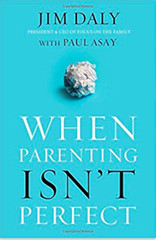We can’t win sometimes. We try. Oh, how we try. We want to always be there for our precious children. To find the perfect words to heal a hurting heart. To do everything just right. But we can fail, too. We fail our children. We fail ourselves. Families are full of failure, and it’s hard to forgive or understand sometimes. Jim Daly knows the feeling. His family looks a lot like mine. Yours too, probably. You know what I love about When Parenting Isn’t Perfect, Jim’s latest book? His honesty. He knows he’s not a perfect dad, and that’s ok. In fact, from his own experience, Jim explains that when we try be perfect—when we lean away from God’s grace and into our own sense of how things should be—that’s when God’s picture of family goes wrong. It’s a grace to welcome Jim to the farm’s front porch today…
The Daly family is two kids bigger for a while.
We have a pair of foster children with us, ages three and five.
We can’t use their real names, but we’ll call them John and Jerilee. We’re being a safe place for them while their brave mother deals with some legal issues and gets her life back on track.
We’re happy to do it, though Jean was the one who really stepped up. Honestly, I’m not nearly as good as Jean is with our foster kids.
I’m probably not as attentive as I could or should be—a little weird, given my background as a foster kid myself.

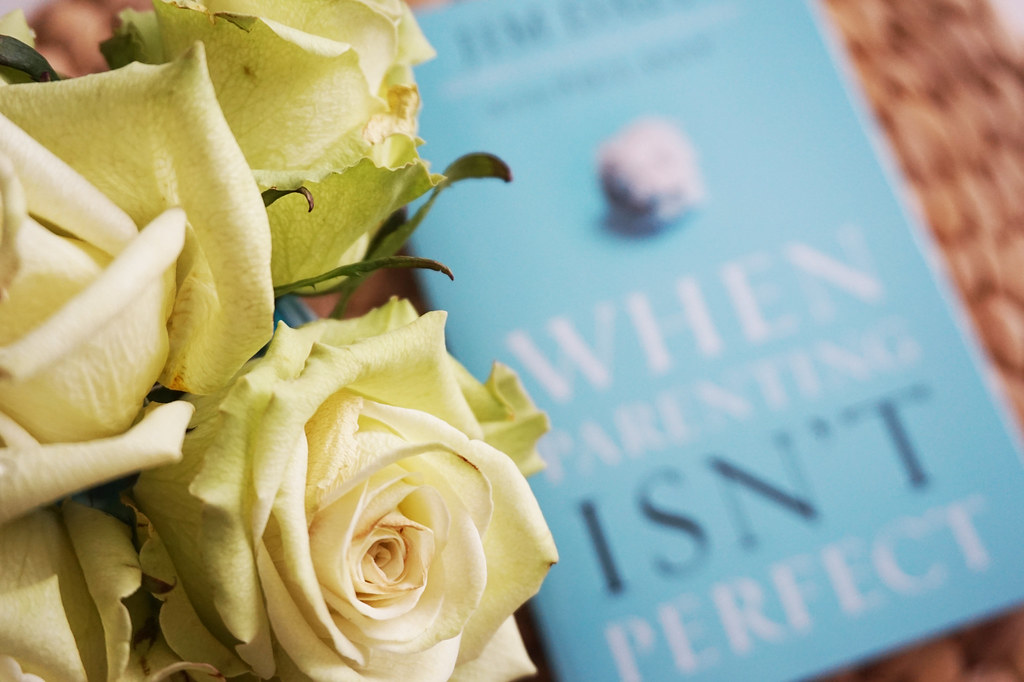


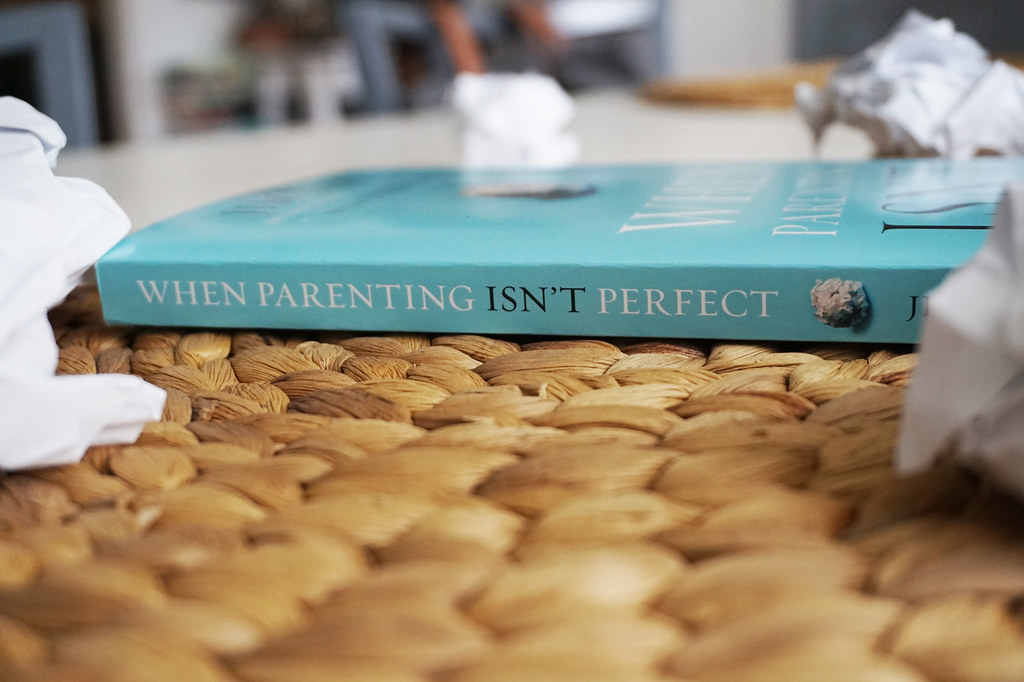
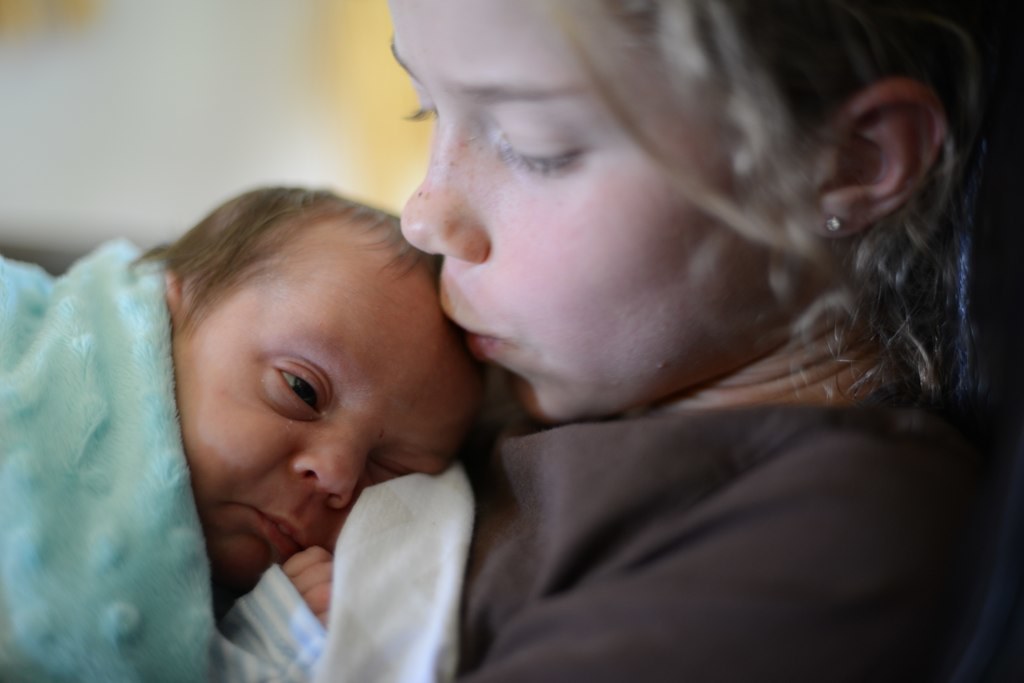
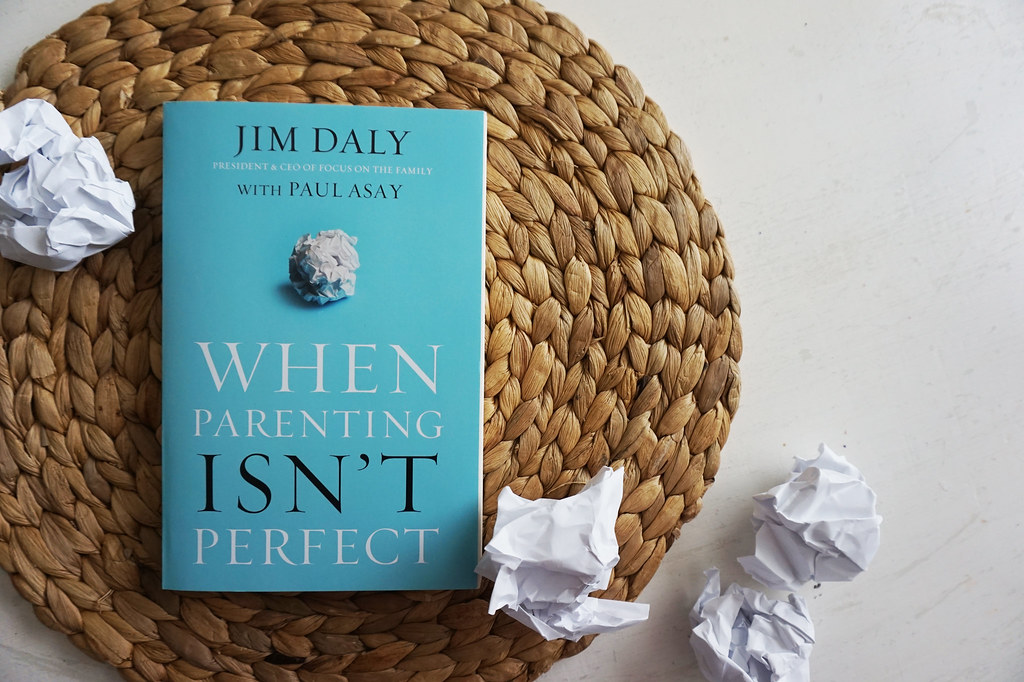
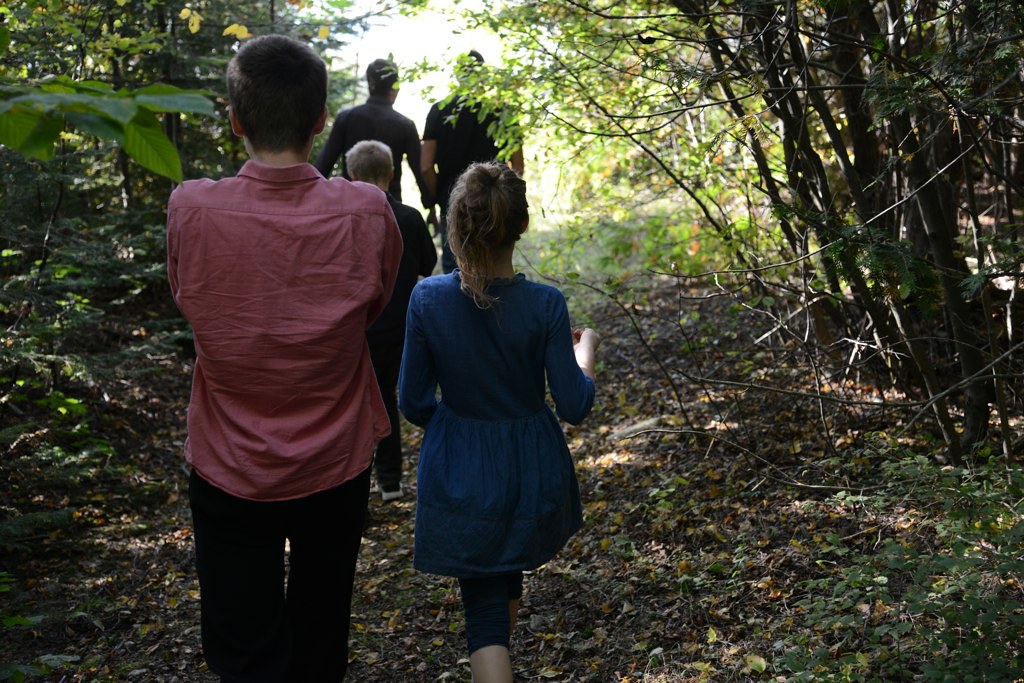
But Jean is amazing with these kids. She really is.
She plays games with them, reads them to sleep at night, and she does everything in her power to make sure they’re experiencing a loving, safe home. If they spill something or make a mistake, she’s very understanding. Instead of getting angry, she’ll let it pass with a smile and a laugh.
Jean has an incredible capacity to serve those children. She’s the picture of grace.
I try to follow her example.
We want to give these kids as much comfort and security as we can while they’re here.
I don’t want to overspiritualize this, but we try to model Jesus for them. To show them what His love and grace look like, hoping that’ll make a difference. Hoping they’ll be able to carry a hint of God’s reflection throughout the rest of their lives.
But while we hope these foster kids are watching us and learning, maybe we forgot that Trent and Troy were watching and learning, too. One day, when they thought Jean and I were out of earshot, we heard them talking to one another.
“It’d be awesome if Mom and Dad treated us the way they do those foster kids,” they said.
BOOM.
We Christians understand grace.
We know its significance better than anybody.
And we can be so good in showering that grace on other people. The poor. The suffering. The widows. The foster kids.
I know Christians who have given jobs to convicted killers and have opened their homes to the homeless. According to Gallup, nearly two-thirds of Americans volunteered in 2014, with researchers finding that “Christians are more likely than those with no religious affiliation to report that they made donations and volunteered time.”
Even atheists see how dedicated we Christians are to showing God’s love and mercy in important, pragmatic ways. “For all the faults in theology, Christians have a lock on charity work,” reads a post from Minnesota Atheists.
But if charity begins at home, why do we sometimes struggle to show charity in our own homes, with the people closest to us?
We understand that the world is a messy place, and we’ll wade into that world with both feet and a smile on our face. But if we see a messy bedroom, we come down like a brick house.
We save our grace for outsiders. We reserve our tolerance for those who “need” it.
But in Christian families, more often than not, we operate far more on an expectation/reward cycle. We’re big on “if you act right, you’ll get rewarded, but if you behave inappropriately, you’ll be penalized.”
It’s as if we imagine we’re raising lab rats, not children of God: Solve the maze, get a pellet; take a wrong turn, get a shock.
It’s so different from what God does with us, isn’t it? He doesn’t ask us to be perfect. He expects the mess. He knows we’re messy people.
“I want you to live a life that reflects My character,” He tells us (in essence). “But I’m not judging you on your behavior. I’ve already got it covered. You’re Mine not because of what you’ve done, but what I’ve done for you.”
God tells us that He loves us. And as we grow to understand that love more and more, we want to follow His example more and more.
It doesn’t work the other way—that God says if we’ll behave, He’ll love us.
But sometimes that’s what we convey to our children, isn’t it? We ask them for their obedience, for their unwavering commitment to us and our rules, for their perfection.
And we forget that the messes they sometimes make are part of growing up.
They’re messy because they’re born messy, and they’re still learning.
And so are we.
Mess. It’s part of creation. It’s part of life.
Our task as parents isn’t to avoid it; it’s to accept it.
Sometimes even celebrate it.
Because out of the mess, something beautiful can come.
Jim Daly is the president and CEO of Focus on the Family. He sees and hears from mothers and fathers trying hard to be perfect every day. Jim knows exactly what it’s like to chase after perfection that’s forever out of reach because he’s been there himself.In his new book, When Parenting Isn’t Perfect, Jim’s so needed warm encouragement will help parents stay engaged when the pain from falling short seems too much to bear. God doesn’t expect us, and our kids don’t need us, to be perfect.
As parents, we’re called do our best. And when we fail – which we will – we’re invited to try again tomorrow…or later this afternoon. This is a book every parent NEEDS –– to take hold of Jim’s message with a courage only possible through desperate hope in the endless grace of God.
[ Our humble thanks to Zondervan for their partnership in today’s devotion ]

